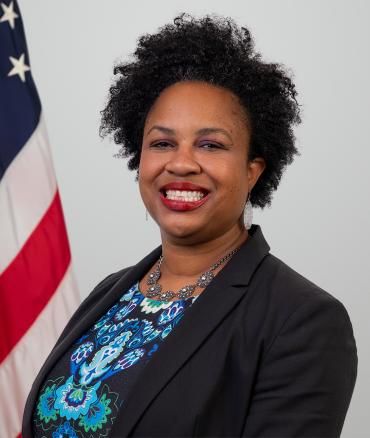As the potential end of Robert Califf’s time as FDA commissioner nears, he and a key deputy are continuing to push forward with changes to the advisory committee process.
In a Nature commentary published Monday, Califf and Deputy Commissioner Namandjé Bumpus shared their thinking about how the committee process might change. That includes potentially moving away from voting in many scenarios and relying more on committee discussions.
 Namandjé Bumpus
Namandjé Bumpus“Voting is not a mandatory part of [advisory committee] meetings, and votes are typically not taken at meetings discussing general issues, such as clinical trial design or the development of guidance documents,” Califf, Bumpus and Emily Helms Williams, regulatory counsel in the Office of Regulatory Counsel, Center for Drug Evaluation and Research, wrote in the commentary. “FDA staff may be primarily interested in the discussions and interpretation of particular aspects of the data rather than in a summative conclusion regarding risks and benefits.”
Other top leaders at FDA have stressed that the votes won’t be eliminated.
Califf and Bumpus also noted how the final vote tally often receives more attention outside the FDA than the discussion, possibly leading to the misconception that adcomm votes are agency approval decisions.
In April, the FDA sought public input on how the panels, which are made up of outside experts, are used and how their purpose can be made clearer internally and to the public.
On top of voting, FDA is also looking to update and expedite systems used to gather conflict-of-interest information on committee members.
In a recent survey of more than 400 former and current adcomm members, conducted as part of the public input on these adcomm reforms, 90% of respondents said the FDA should allow subject matter experts with a conflict of interest to participate. However, most said that participants with conflicts should join only as non-voting members. In the past, the FDA has struggled to fill some adcomms with voting members because of conflicts.
Califf and Bumpus also wrote about how they’re looking to improve the recruitment of committee members, “possibly by increasing dedicated staff and engaging existing committee members,” and to improve the “utility of the advice the FDA receives from [advisory committees], including by evaluating the composition of existing committees and considering how to best solicit useful feedback from committees.”